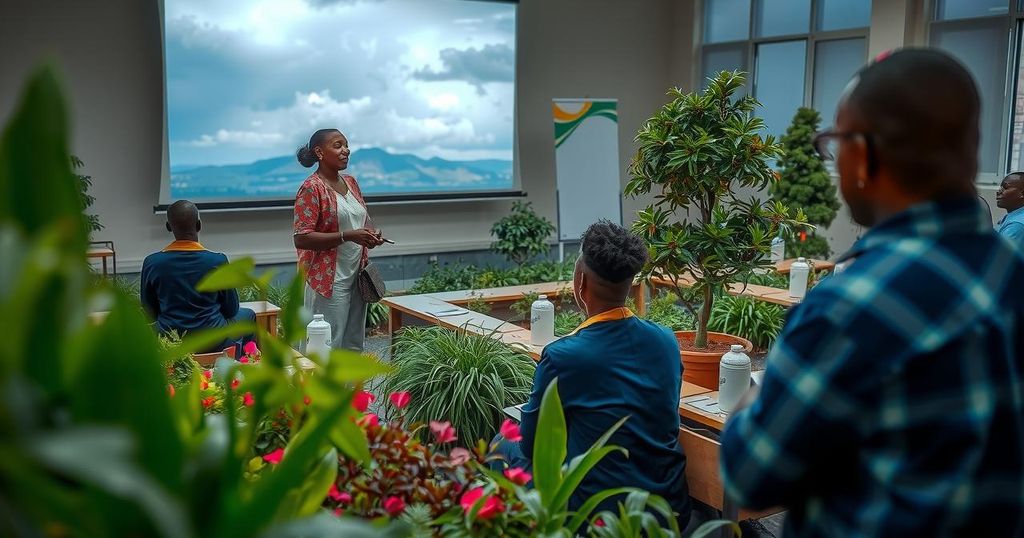Enhancing Climate Change Reporting: A Collaborative Workshop for Kenyan Journalists
The Kenya Union of Journalists and the International Federation of Journalists held a workshop for 18 journalists to enhance their skills in climate change and environmental reporting. Key discussions included the media’s role, challenges faced in reporting, and the importance of accurate, story-driven narratives. Emphasis was placed on the necessity for direct engagement with affected communities and demanding transparency in climate finance.
In a significant initiative, the Kenya Union of Journalists (KUJ) and the International Federation of Journalists (IFJ) conducted a two-day workshop aimed at enhancing the skills of 18 journalists from various state and private media houses in Kenya. The focus was on improving climate change and environmental reporting through effective storytelling methods. The event highlighted the critical role of media in addressing climate change, especially in regions where the impact is profoundly felt, such as Africa, which often sees underreporting despite being heavily affected by these issues. During his opening remarks, KUJ Secretary General Eric Charles Oduor emphasized that climate change represents “the biggest story of our time”. He underscored the media’s responsibility to amplify the challenges faced by communities regarding climate issues and to showcase their mitigation and adaptation efforts. Oduor challenged journalists to actively participate in the fight against climate change by delivering impactful and informative reports. Pa Louis Thomasi, Director of the IFJ Africa Office, acknowledged the obstacles faced by African journalists in this domain. He pointed out the lack of reliable data on climate change in many countries, compounded by governmental reluctance to provide necessary information. Furthermore, Thomasi noted the deficiencies within private media houses regarding resources for comprehensive investigative reporting on climate issues, highlighting the vital need for increased training for journalists in this field. Lead trainer Marvel Powerson, a journalist and communication consultant, stressed the importance of facts in climate journalism. She insisted on the necessity for journalists to “debunk disinformation on climate change through fact-checking” and to engage with affected communities firsthand to truly understand their hardships. Powerson encouraged reporters to incorporate indigenous knowledge in their narratives and emphasized the obligation to demand transparency in climate finance by following the financial flows related to climate initiatives. The workshop covered diverse topics such as the media’s role in fostering climate action, essential tools for climate journalism, case studies on successful reporting, and the interplay of media freedom with the pursuit of climate justice, among others. The initiative aimed to arm journalists with the necessary skills and knowledge to tackle climate reporting more effectively.
Kenya has increasingly recognized climate change as a pressing concern, with its impact felt more acutely than in many other regions. The media plays a critical role in not only raising awareness but also in influencing public policy and action regarding environmental issues. However, there remains a significant gap in climate reporting in African media, due in part to challenges such as limited access to reliable data, governmental constraints, and a lack of resources for in-depth reporting. Furthermore, targeted training for journalists in this area is crucial to empower them to cover these essential stories effectively and responsibly.
The workshop conducted by the KUJ and IFJ serves as a pivotal step in strengthening the capacity of Kenyan journalists to report on climate change and environmental issues. By enhancing understanding through training and providing tools for effective storytelling, the initiative aims to hold accountable those in power and elevate the crucial narratives surrounding climate change. As journalists become more equipped to cover these stories accurately, they can significantly contribute to climate awareness and action in their communities.
Original Source: www.ifj.org




Post Comment